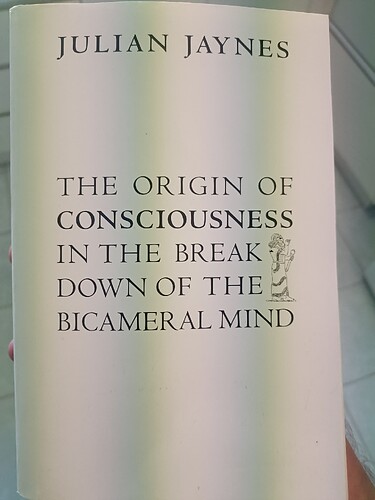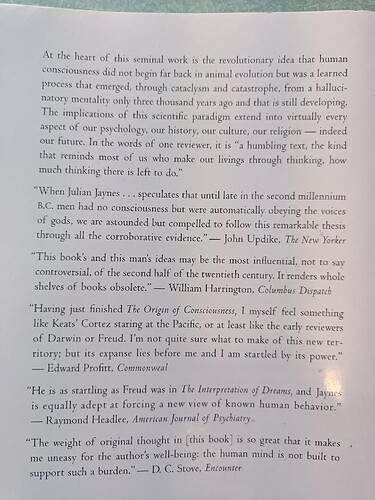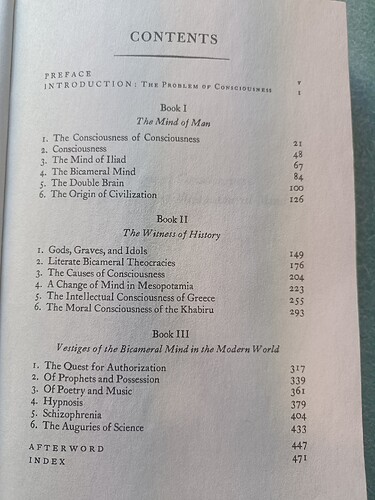Yes, the number itself seems suspect. It was from memory, and I have no idea how it was derived.
So, thinking about how many I am exonerating, it’s likely to be exponentially less than those who lived since the “breakdown of the Bicameral Mind”.
Jaynes made many points about different cultures persisting in the Bicameral way of self too. For example, South America, Australia, and anywhere else that didn’t have a writing system (as apposed to artistic representation).
Some of the things I remember from the book; there is no record of ancient Egypt (or any culture from that time circa 2000bc) having a “police force”. Armies? Yes, often large. But police, no.
The point being, control of the individual was more like a swarm, with no need to “police” anyone.
It would tie into the “disfranchisment” feeling too. As there was a security in being an automaton. The increased ‘self’ awareness would increase the anxiety of the individual.
Is it necessary to believe something which is speculative at best to have success with actualism?
How does the opinion that all members of our species going back into prehistory have the same consciousness as our own help?
If anything, especially if it is not true, is itself holding people back.
One of the main reasons that Jaynes book has been roundly ignored by most; it is very comprehensive in presenting an evidence based argument that all the gods and the supernatural were our own biology.
As Peter (actualists, not apostle) notes at one point (paraphrasing here from memory); " everyone is spiritual when pushed" - that was a bad paraphrase even for me! However, the point is, Jaynes thorough evidence destroys the spiritual world view.
As Peter points out about people being essentially spiritual (even avowed atheists will often come out with something spiritual dressed up as science), compelling evidence that it is all a trick of nature was never going to be popular.
The book is 49 years old.


